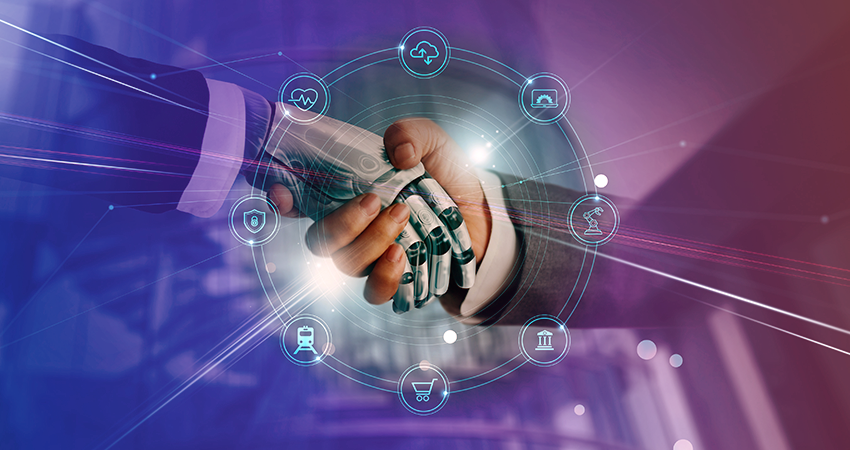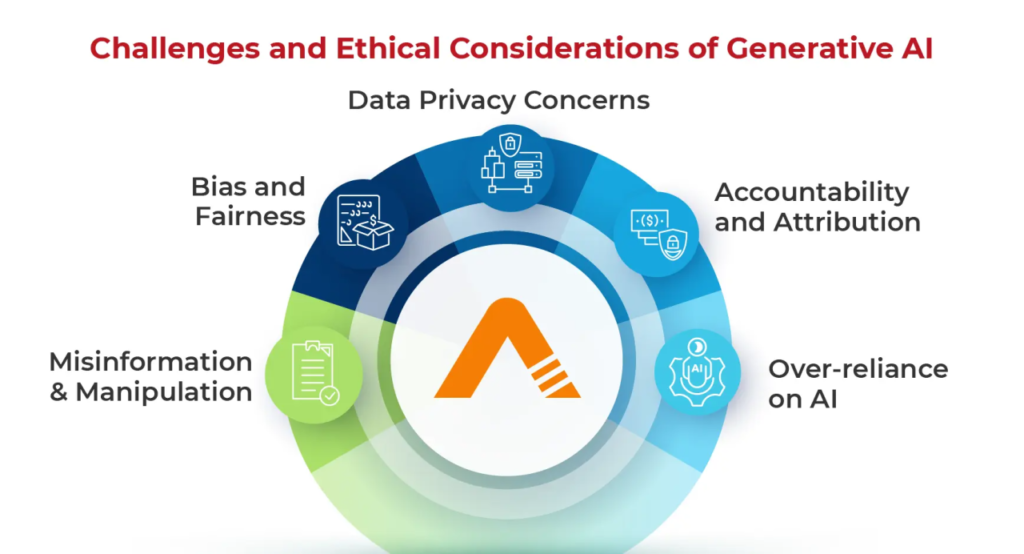In 2025, generative AI has moved beyond the realm of novelty — it’s now reshaping how we live, work, and create. From powering intelligent business tools to helping artists push the boundaries of their imagination, generative AI is no longer just a buzzword. It’s a movement.
The technology that once sparked cautious curiosity is now being embraced across industries. Writers, designers, marketers, coders, and educators are using generative AI not just to save time, but to amplify their ideas, reimagine workflows, and accelerate innovation. What was once considered futuristic is now a core part of everyday productivity.
Let’s take a closer look at how generative AI is creating new pathways for creativity and transforming the way we work in 2025.
How generative AI is creating new pathways?
From Buzz to Business Backbone
The workplace has undergone a radical transformation, thanks to AI systems that can now generate realistic content — from emails and reports to product mockups and even legal documents — in seconds.
Companies in 2025 are embedding generative AI into everything: customer support chatbots that understand emotion, marketing campaigns that are auto-generated with brand-aligned tone, and even internal communication drafts that mirror the company’s unique voice. It’s not about replacing humans — it’s about empowering them to work smarter and faster.
Startups are scaling faster, solopreneurs are doing the work of five people, and large enterprises are reducing overhead by integrating AI into their tech stacks.

The Rise of AI Co-Creators
Creativity is no longer a solitary process. Generative AI has become the silent co-creator behind everything from digital art to screenplays. Whether it’s Midjourney turning prompts into surreal visuals or advanced music models composing scores for indie filmmakers, the creative world is undergoing a major shift.
Writers are using AI to overcome creative blocks, illustrators are experimenting with hybrid styles, and social media creators are rapidly generating content at scale without losing originality.
The result? A creative renaissance powered not by machines alone, but by human-AI collaboration.

Personal Productivity Reimagined
From students to freelancers, personal productivity tools infused with generative AI have become indispensable. In 2025, AI tools write emails, summarize documents, generate meeting notes, and even offer personalized career advice.
Many professionals now begin their workday with an AI dashboard that suggests high-priority tasks, drafts proposals, and creates presentation decks. AI is not just managing to-do lists — it’s actively helping people achieve flow.
Apps like Notion AI, GrammarlyGO, and ChatGPT are no longer optional — they’re essential. People are achieving more in less time, and the quality of output has gone up, not down.
New Creative Careers Are Emerging
As AI becomes an everyday tool, new career paths are emerging. Prompt engineering — the skill of crafting the right AI prompts to generate high-quality outputs — is now a sought-after job. AI content curators, trainers, and ethicists are in demand.
Brands are hiring AI stylists to craft visual identities with the help of generative tools. Musicians are collaborating with AI to explore new sounds. Even therapists and coaches are using AI-generated scenarios to simulate conversations and aid decision-making.
The line between creator and coder is blurring — and it’s opening up new economic opportunities for people from all backgrounds.

Empowering Inclusion and Accessibility
One of the most powerful impacts of generative AI in 2025 is its ability to democratize access. People who previously felt left out of tech or creative industries due to lack of resources or technical skills are now finding a voice.
Language barriers are fading thanks to real-time translation tools. Visually impaired users are exploring digital art using text-based generation tools. Non-designers are creating stunning graphics. Students from rural areas are accessing top-tier tutoring powered by AI chatbots.
Generative AI is helping level the playing field — and that’s perhaps its most inspiring transformation.
Challenges and Ethical Frontiers
Of course, the boom hasn’t come without questions. Deepfake concerns, intellectual property issues, and misinformation risks are all part of the ongoing conversation.
In 2025, regulations are slowly catching up. Tech companies are now required to watermark AI-generated content. Ethics boards are reviewing how generative AI is being used in education and media. Transparency is a key focus — people want to know when something is human-made or machine-generated.
As generative AI becomes more powerful, a strong ethical framework is crucial to ensuring its benefits outweigh its risks.

Generative AI in Everyday Life
AI is no longer just in the workplace — it’s in your living room, your phone, even your car. People are using AI to plan their meals, generate shopping lists, design home interiors, and even write bedtime stories for their children.
Home assistants are now truly intelligent, capable of holding meaningful conversations, understanding tone, and predicting your needs before you ask.
In education, teachers are using AI to personalize learning paths. In healthcare, AI-generated symptom analyzers are helping diagnose illnesses faster. Across the board, AI has gone from being a tool to being a partner in life.

What’s Next?
If 2023 was the spark, 2025 is the wildfire. Generative AI is no longer the future — it’s the now. As it continues to evolve, we can expect even more seamless integration across fields, more powerful models, and more human-centric design.
We’ll likely see AI that not only responds but understands context deeply, adapts to personal values, and evolves with the user. Human-AI collaboration will become the default mode of working — not just for professionals, but for anyone with a smartphone and an idea.
This isn’t just a technological revolution. It’s a mindset shift — one that celebrates creativity, efficiency, and empowerment.
Backlinks
https://builtin.com/artificial-intelligence/future-of-generative-ai
Final Thoughts
2025 marks a pivotal moment where generative AI is no longer experimental — it’s essential. It’s redefining what it means to be creative, productive, and connected. Whether you’re a designer, developer, teacher, or entrepreneur, generative AI has something powerful to offer.
The question now isn’t whether AI will impact your life — it’s how you choose to use it. And in that choice lies the most exciting transformation of all.
Also read : Dopamine Décor Hacks That Instantly Boost Your Mood at Home






